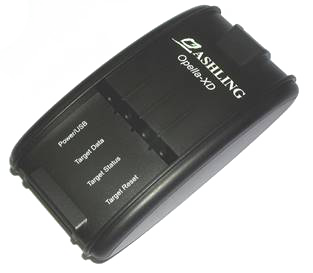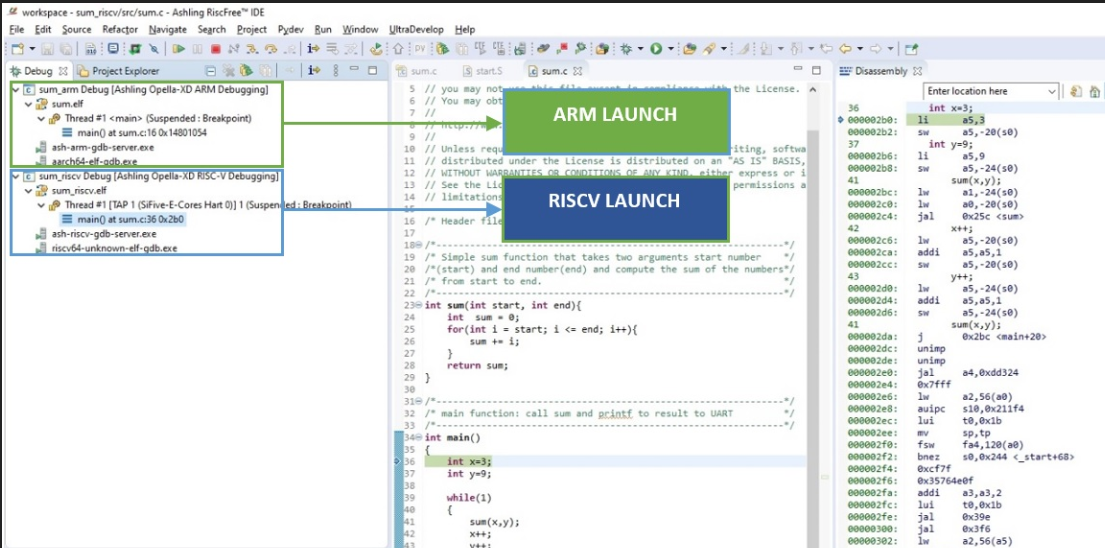Opella-XD Debug Probe
Ashling’s Opella-XD is a universal, high-speed debug probe for embedded development supporting a broad range of MCUs, SoCs and Soft (FPGA) based designs for all popular target architectures including Arm, MIPS, RISC-V and Synopsys ARC.

Opella-XD Debug Probe
Opella-XD Features:
- Up to 3MB/s download speeds making it suitable for large, complex, software-intensive projects.
- Fast, trouble-free “plug-and-play” installation using USB 2.0 High-Speed Interface (480Mb/s).
- Powered by USB interface – no external power-supply required.
- JTAG (IEEE 1149.1), cJTAG (IEEE 1149.7) and Arm CoreSight Serial Wire Debug (SWD) standards supported.
- Fine-grained adjustment of cJTAG/JTAG/SWD clock frequency from 1kHz to 100MHz.
- Auto-conditioning support provides maximum possible download speed to target with fastest cJTAG/JTAG/SWD clock frequencies.
- Hot-plug support – allows connection to a running target without resetting or halting.
- Supports target operating voltages from 0.9V to 3.6V– probe detects and automatically configures for the appropriate target voltage.
- Configurable Target-Reset and Test-Port-Reset, under full user control.
- Built-in diagnostics and LEDs instantly show status of Target, Debug Probe and USB link.
- Low-level JTAG command-line console and APIs for device bring-up etc.
- Display/read/write of target system memory and peripheral registers.
- Fast in-target Flash and FPGA programming.
- Support for all on-chip hardware breakpoints and watchpoints – unlimited software breakpoints.
- Run/stop control of target application including go, halt, step over, step into and step out of.
- Multi-core heterogeneous and homogeneous debug scan-chain support via cJTAG/JTAG/SWD. See here for more details.
Opella-XD works with RiscFree™, Ashling’s Eclipse-CDT based Integrated Development Environment (IDE) and Debugger. GNU GDB and other third-party debuggers are also supported. Contact Ashling for more details.

Figure 1. RiscFree™ Debug View with Multi-core RISC-V and ARC launches
